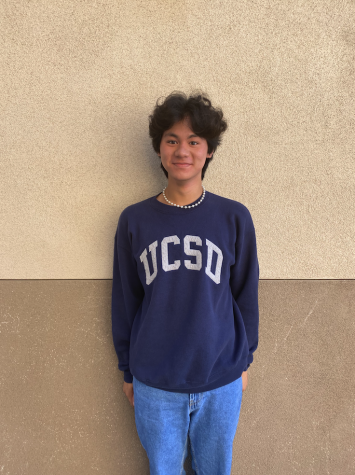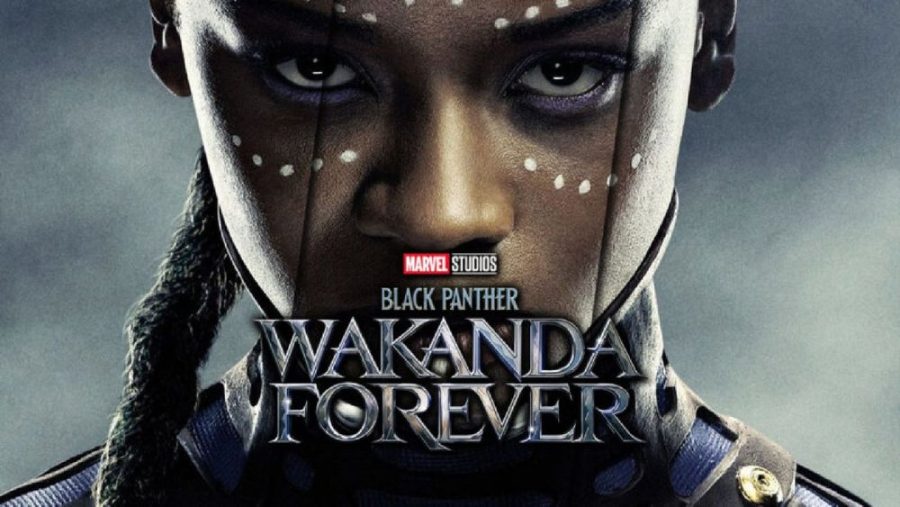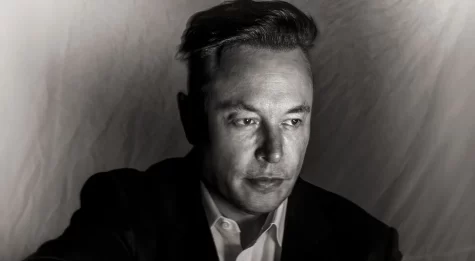Black Panther: Wakanda Forever
With Phase 4 of the Marvel Cinematic Universe nearly over, Marvel Studios finally seems to be regaining its footing with Ryan Coogler’s “Black Panther: Wakanda Forever.” The sequel to the equally stunning 2018 film “Black Panther,” “Wakanda Forever” is a heartfelt tribute to Chadwick Boseman, who played King T’challa, the holder of the Black Panther mantle in the first movie. Boseman passed away in August of 2020, but his presence is still felt throughout this film.
In “Wakanda Forever,” the entire nation of Wakanda struggles with the gaping hole left by T’challa (Chadwick Boseman) after his death, all while reeling from his choice to reveal them to the world in the first movie. Princess Shuri (Letitia Wright), T’challa’s sister, buries herself in technology, while her mother, Queen Ramonda (Angela Bassett), tries her best to lead the struggling nation. The film also introduces Namor (Tenoch Huerta), the King of Talokan, an undersea nation that, along with Wakanda, holds the only Vibranium in the world—the metal that allowed Wakanda to surpass every other surface nation. However, with T’challa’s revelation to the world about the power of vibranium, Talokan’s status as a hidden nation is threatened, which brings them into direct conflict with Wakanda.
The film is ultimately a story about grief – the grief the characters have for T’challa, but also that which the actors have for Boseman. Director Ryan Coogler taps into this grief, as well the collective sorrow of the audience, to weave a stirring tale of loss and heartache. With a less careful hand, the film may not have worked at all, but Coogler manages to perfectly balance the politics of warring nations and the classic Marvel superhero tale, while still giving the characters – and audience – space to process T’challa’s passing.
In “Wakanda Forever,” Letitia Wright’s Shuri steps up to lead the film, but unfortunately, Wright just does not have the presence to carry it on her own. As a result, the film relies heavily on the supporting cast, including Tenoch Huerta’s incredible performance as Namor and Angela Bassett’s Queen Ramonda. While Bassett was already remarkable in the first film, her character took on a new life in “Wakanda Forever,” delivering perhaps the most visceral line of the movie.
“I am Queen of the most powerful nation in the world, and my entire family is gone. Have I not given everything?” Basset’s Romanda asks, tears streaming down her face.
Her delivery transcends the script and takes on new meaning in the film. The power in her voice truly does hold the weight of a Queen trying to hold an entire nation together, while still grieving her son’s loss. Bassett’s performance is so full of passion, yet still contains a quiet strength that is majestic to watch. Queen Ramonda grounds the film while still giving other characters an equal chance to shine.
Unfortunately, “Wakanda Forever” struggles where almost every Marvel project does – the climax. For the first two-thirds of the film, it feels like a geopolitical thriller, with Wakanda and Talokan trying to thwart each other while keeping their conflict hidden from the outside world. However, the final third of the movie tosses all discretion out the window, culminating with a huge fight on a ship in the middle of the ocean. The film is a suspenseful slow-burn to the climax, but in the end it just misses the mark, leaving viewers unsatisfied.
The final 20 minutes of the film return to where the movie was strongest – when it was exploring grief. It concludes with Rihanna’s tribute ballad to Chadwick Boseman, “Lift Me Up,” which perfectly encapsulates the themes of the film. Although one may pass away, their legacy will always live on, and they never truly die if you keep them in your heart.
“Black Panther: Wakanda Forever” is a film forged from tragedy, and manages to serve as a heart-wrenching tribute to the star of the original film while still finding its own path beyond him.













